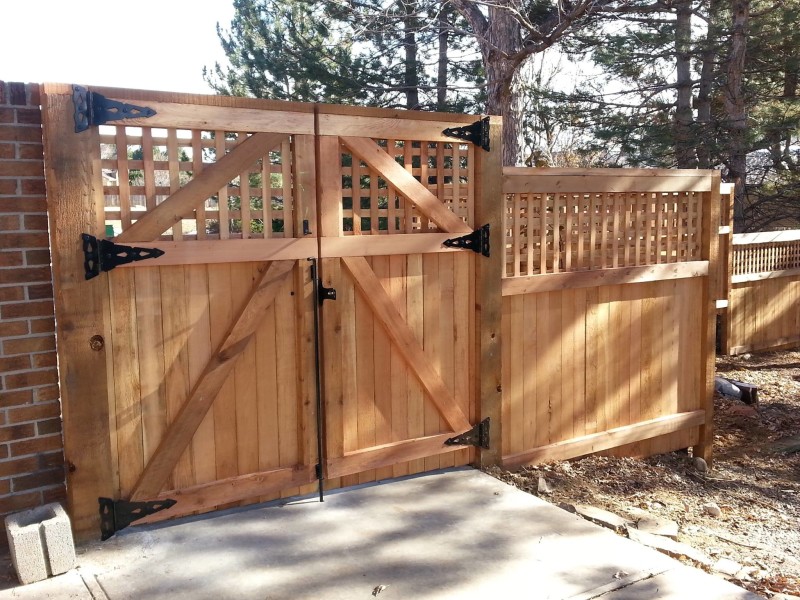All Categories
Featured

When preparing to set up a fence around your residential or commercial property, one of the first steps is recognizing the permitting requirements in your area. Here's what you require to recognize concerning getting the needed permits for your fencing installation.
Why Do You Required a Permit for a Fence? A license is typically required for fence setups to ensure compliance with local building codes, zoning legislations, and security policies. Allowing helps neighborhood authorities preserve harmony in community aesthetic appeals, safety, and ecological factors to consider. It additionally makes certain that the fencing does not conflict with utility lines or public spaces, which it sticks to height and boundary restrictions.

Usual Permits Needed for Fence Setup. Building License. Many locations require a building authorization for fence installation, especially if the fencing surpasses a certain height (typically over 6 feet) or is made from non-standard materials. This license makes certain that your fencing complies with regional building ordinance. In some areas, the structure division will examine the website to make sure that the fencing meets safety and structural standards.
Zoning Permit. Zoning permits are created to ensure that your fencing sticks to regional zoning legislations, consisting of setbacks from residential or commercial property lines, easements, and rights-of-way. Zoning laws vary from city to city, and in some cases, your fence may require to be set back a specific variety of feet from the pathway or roadway. A zoning authorization might additionally be required if your fencing is in a historic area or various other specifically marked locations.

Fence Permit. In some places, a particular "fencing permit" may be required. Some cities restrict chain-link fences in front lawns or have specific regulations for privacy fencings.
HOA Authorization. You might need authorization prior to mounting a fence if your home is component of a property owners association (HOA) HOA guidelines often consist of specific regulations concerning the kind, height, color, and materials for fencings to maintain the neighborhood's visual appeals. HOA guidelines can be more stringent than city codes, so constantly check their guidelines before progressing.
Easement or Utility Licenses. If your fence will certainly be near or throughout an easement (such as an energy easement), you may require to obtain approval from the energy business or various other entities that control the land. This is specifically crucial if you prepare to dig for fencing blog posts, as it guarantees you won't harm below ground energies like water, power, or gas lines.
Exactly How to Locate Out What Allows Are Needed. The most effective method to identify which authorizations are necessary for your fencing installment is to contact your local structure division or community office. They can supply you with details info about demands in your location. Right here are a few actions you can take to discover:
Examine the City or Region Website: Numerous local governments supply information regarding fencing installment allows online. Search for structure or zoning areas on their website. Call or Check Out Citizen Federal Government Offices: If the information is not conveniently available online, calling or going to the local workplace in person can clarify what's required. Get In Touch With a Specialist Specialist: If you're unsure or overwhelmed by the procedure, a local contractor or fence installation business can help in browsing the allowing procedure, as they're acquainted with local guidelines. What Occurs If You Don't Get a License? In numerous locations, you might face penalties, and your fencing might be purchased to be gotten rid of. Permitting makes certain that your fencing is compliant and aids stay clear of future problems.
Final thought. Before installing a fence around your residential property, it's necessary to check whether a license is called for in your location. Structure authorizations, zoning authorizations, HOA authorization, and energy authorizations may all play a role in your fence installation procedure. Putting in the time to study and obtain the necessary authorizations will certainly not only guarantee that you're complying with neighborhood guidelines, but also assist protect your investment and keep the stability of your residential or commercial property.
Latest Posts
Learn How WyHy Federal Credit Union Maximizes Your Savings on Borrowing and Banking
Published May 27, 25
1 min read
Improve Your Home's Exterior with Weathercraft's Exterior siding Solutions
Published May 25, 25
1 min read
Unlock WyHy FCU – Key Advantages for Your Future
Published May 25, 25
1 min read
More
Latest Posts
Learn How WyHy Federal Credit Union Maximizes Your Savings on Borrowing and Banking
Published May 27, 25
1 min read
Improve Your Home's Exterior with Weathercraft's Exterior siding Solutions
Published May 25, 25
1 min read
Unlock WyHy FCU – Key Advantages for Your Future
Published May 25, 25
1 min read